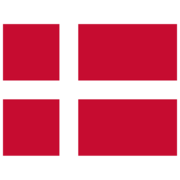Fiscal subject related
Denmark is set to implement significant updates to its e-invoicing system by introducing the OIOUBL 3 Invoice Package. This new format, unveiled by Nemhandel on November 21, 2024, includes several enhancements to improve compliance and interoperability within the European e-invoicing framework.
The main components of the OIOUBL 3 Invoice Package are as follows:
- Business Interoperability Specification (BIS) covers essential documents such as invoices, credit notes, and invoice replies.
- Message Level Response BIS: Introduces two distinct profiles for managing message responses, enhancing clarity in communication.
- Migration Plan: A structured timeline for transitioning from the existing OIOUBL 2.1 format to OIOUBL 3.
- Syntax Bindings and Field Definitions: Detailed specifications for fields used in invoices, credit memos, and responses.
The updated format introduces several significant modifications:
- Separation of Responses: Business-level responses and message-level responses are now clearly distinguished, each with unique customization IDs.
- Mandatory two-way profiles: All institutional users must receive invoice responses at registered endpoints, which streamlines communication and eliminates confusion caused by multiple profiles.
- Field Updates: Free-text fields are now read-only, structured fields have been revised for clarity, and negative credit notes will be replaced with standard invoices.
- Alignment with EN16931: The new format aligns with European standards, including adjustments for field mapping, calculations, and support for environmental data such as CO2 emissions.
Required Actions for Senders and Receivers:
- Invoice Senders: Must register in the Nemhandelsregistret (NHR) using OIOUBL 3 document profiles and be equipped to handle both invoice response and message-level response documents.
- Invoice Receivers: Should maintain compatibility with both OIOUBL 2.1 and OIOUBL 3 during the transition phase while registering as recipients in NHR with updated profiles.
Migration Timeline:
The Danish Business Authority has outlined a phased approach to migration:
- Release Candidate Available: November 15, 2024,
- Feedback Deadline: March 6, 2025,
- Final Version Release: April 10, 2025,
- Voluntary Support Begins: May 15, 2025,
- Mandatory Support Starts: November 15, 2025,
- OIOUBL 2.1 Phased Out: May 15, 2026.
These updates are designed to modernize Denmark’s e-invoicing framework, enhance compliance with European standards, and improve data interoperability across business transactions. By adopting OIOUBL 3, Denmark aims to facilitate smoother electronic invoicing processes that benefit both businesses and government entities.
Other news from Denmark
Denmark Launches SAF-T 2.0
 Denmark
Author: Ivana Picajkić
Denmark
Author: Ivana Picajkić
Denmark has introduced SAF-T 2.0, an updated Standard Audit File for Tax that standardizes transaction-level accounting data and improves transparency, interoperability, and automated data exchange between businesses, auditors, and public authorities. From 1 January 2027, registered digital accounting systems must support SAF-T 2.0, supporting future automated reporting and data-driven compliance... Read more



Denmark: Government to Study Possible VAT Cut on Food from 2028
 Denmark
Author: Ivana Picajkić
Denmark
Author: Ivana Picajkić
Denmark has reached a political agreement to analyse VAT-based measures to reduce food prices from 2028, including either lowering VAT on all food or removing VAT on fruit and vegetables, with DKK 6 billion per year earmarked for one option. No changes apply yet, as the government will complete its analysis and consultations by the second half of 2026 before deciding whether—and how—to implement a... Read more



Denmark Considers Cutting VAT on Food but Faces Structural Challenges
 Denmark
Author: Ivana Picajkić
Denmark
Author: Ivana Picajkić
Denmark plans to reduce VAT on basic foodstuffs from 2028 and is currently debating whether the cut should apply to all food or be limited to fruit and vegetables, marking a major departure from its long-standing single 25% VAT rate model. While both options are permitted under EU VAT rules, each would increase compliance complexity, and the government has indicated that any change will require a... Read more



Denmark: OIOUBL 2.1 – Schematron version 1.17.0. 1.17.0. RC
 Denmark
Author: Ivana Picajkić
Denmark
Author: Ivana Picajkić
Denmark has released OIOUBL 2.1 Schematron v1.17.0 (Release Candidate), introducing stricter tax code consistency checks, enhanced Peppol VAT code alignment, and mandatory currency validation on amount fields. The final version is expected in mid-February 2026, with mandatory implementation by 15 May 2026, giving businesses additional time to test and adapt their invoicing systems. The Danish Busi... Read more



Denmark: Digital accounting obligations from 2026
 Denmark
Author: Ivana Picajkić
Denmark
Author: Ivana Picajkić
From 1 January 2026, Denmark’s Bookkeeping Act will require VAT-registered businesses with turnover above DKK 300,000—including foreign VAT-registered entities—to use compliant digital accounting systems instead of paper-based records. These systems must support structured e-invoicing (OIOUBL/Peppol BIS), digital archiving, and SAF-T generation, with non-compliance subject to supervision by the Da... Read more



Denmark Moves Forward With Digital Bookkeeping as OIOUBL 3.0 is Cancelled
 Denmark
Author: Ivana Picajkić
Denmark
Author: Ivana Picajkić
In 2026, Denmark completes the final rollout of its Digital Bookkeeping Act, extending mandatory electronic accounting and invoicing to around 118,000 additional businesses from 1 January 2026, with in-house systems granted a transition period until 1 July 2026. At the same time, the planned OIOUBL 3.0 e-invoice format has been formally cancelled, creating short-term technical uncertainty as autho... Read more



New document was uploaded: EV-chargers from the Fiscalization Perspective in Denmark
 Denmark
Author: Ivana Picajkić
Denmark
Author: Ivana Picajkić
The purpose of this document is to explain rules regarding the treatment of EV chargers for electric vehicles in Denmark in relation to fiscalization. The document will explain whether they are subjects of fiscalization or not, whether there are some special rules and regulations, or if there are some special rules. Read more
Subscribe to get access to the latest news, documents, webinars and educations.
Already subscriber? Login

